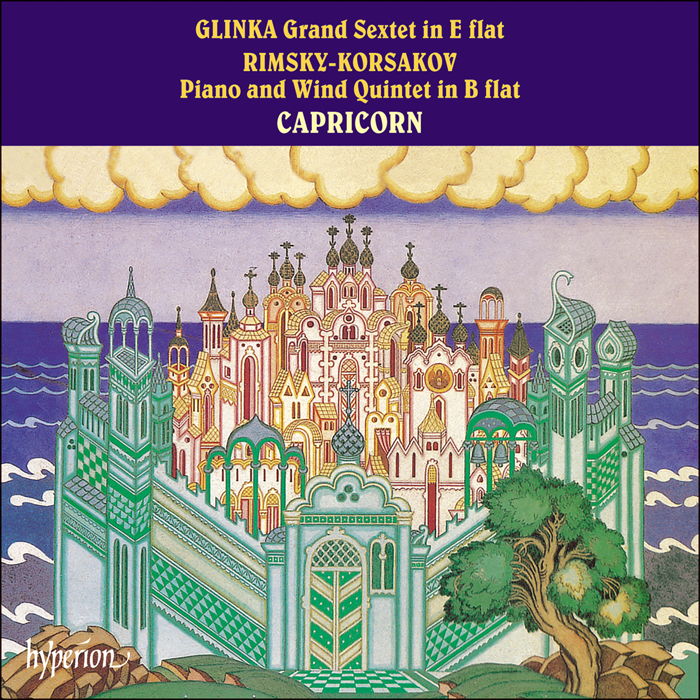Glinka: Grand Sextet; Rimsky-Korsakov: Quintet
Capricorn
CDA66163
The forty-four years which separate the two works on this recording witnessed an enormous development in Russian musical life, as the nationalist composers became firmly established and musical activity spread beyond the confines of aristocracy and court to a much wider bourgeois audience. From the reign of Peter the Great (1682–1725) onwards, Russian cultural life was increasingly invaded by Western European ideas; Italian operas were performed in St Petersburg from 1731, with a French company arriving in 1764. Some Russian composers studied in Italy, and towards the end of the century, when Russian folk songs became fashionable, there was some ‘Russianization’ of the conventional Italian idiom with the inclusion of some Russian tunes and stories. By the early nineteenth century St Petersburg was much like any other cosmopolitan European city; Mozart’s Don Giovanni and The Magic Flute were performed in 1797, and there were regular performances of Italian and French operas, especially those by Rossini, Cherubini, Méhul and Boieldieu. The Philharmonic Society was formed in 1802, giving performances of large choral works, including Haydn’s Creation and Seasons, as well as the premiere of Beethoven’s Missa Solemnis in 1824, and amongst musical amateurs of the aristocracy salons with chamber music were common.

